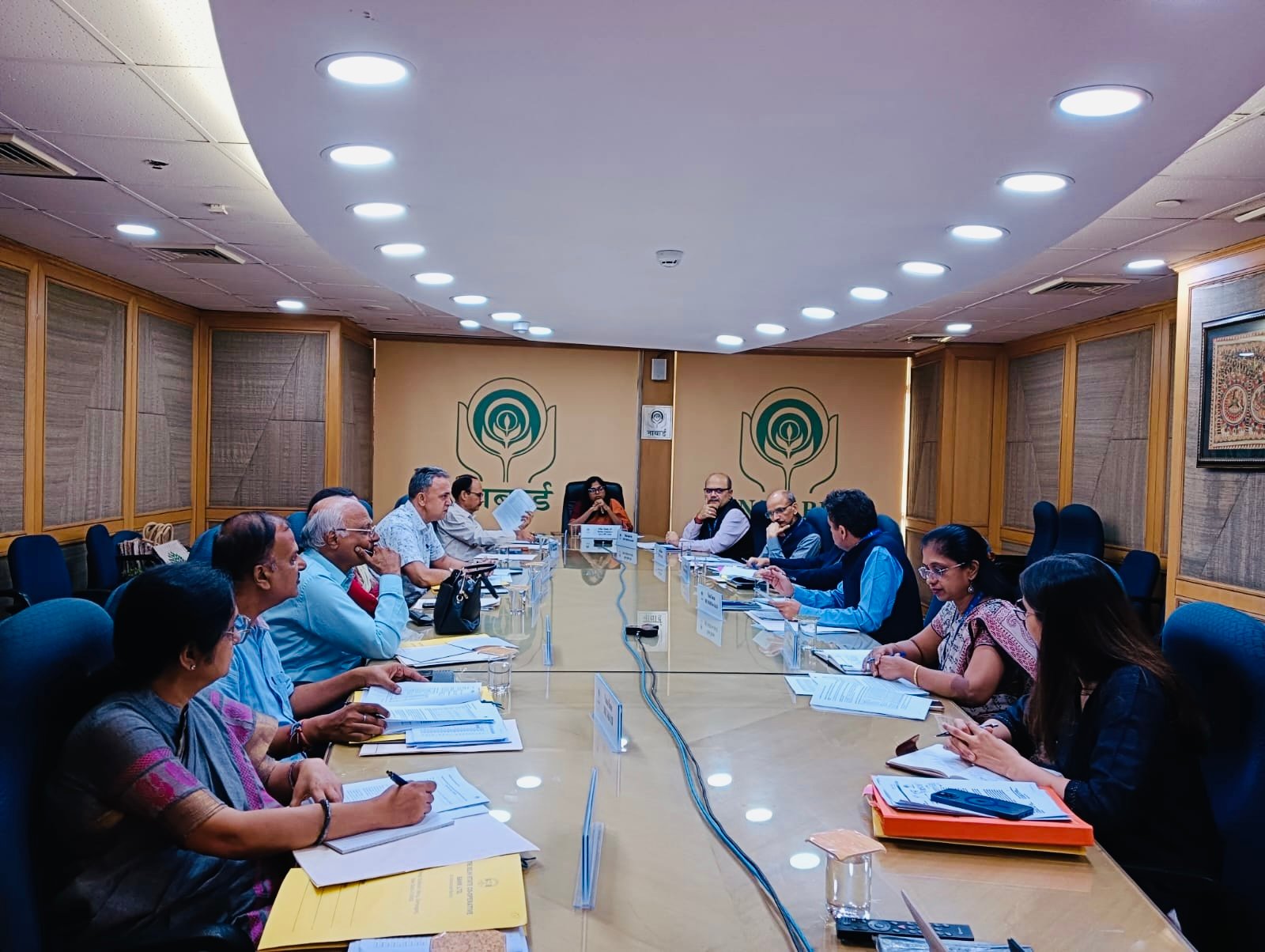Sunday, 1 February 2026

The National Bank for Agriculture and Rural Development (NABARD) convened the first High-Level Committee (HLC) meeting for FY 2025–26 on Short-Term Cooperative Credit Institutions (STCCIs) of Delhi, setting the agenda for a stronger, tech-enabled, and more inclusive cooperative credit ecosystem.
The meeting, held at NABARD’s New Delhi Regional Office, was chaired by Smt. Shilpa Shinde, IAS, Secretary (Cooperation), Government of NCT of Delhi. It brought together key decision-makers from the cooperative banking and regulatory ecosystem, including Ashok Kumar, General Manager, Reserve Bank of India (RBI); Krishna Kumar Singh, IAS, Registrar of Cooperative Societies, GNCTD; Rajiv Kumar Kadyan, Officiating Managing Director, Delhi State Cooperative Bank (StCB); and Nabin Kumar Roy, General Manager & Officer-in-Charge, NABARD, who served as Convener of the HLC. Savitri Singh, Deputy CEO of the National Cooperative Union of India (NCUI), participated as a special invitee.
The HLC, constituted under the chairmanship of the Secretary, Cooperation Department, serves as a platform to review and strengthen the financial health, governance, and operational resilience of rural cooperative banks. Discussions at the meeting spanned financial performance of Delhi StCB, adherence to statutory and regulatory requirements, governance frameworks and fraud prevention mechanisms, grievance redressal systems, and the rollout of technology upgrades including Core Banking Solutions and cybersecurity compliance. Participants also emphasized the importance of professionalizing human resource management, investing in cooperative training, deepening financial inclusion efforts, and extending support to lower-tier cooperatives. State-specific cooperative challenges and strategies for long-term sustainability were also addressed in detail.
Delhi’s Short-Term Cooperative Credit Structure (STCCS) operates on a unitary model with Delhi StCB at the apex level, managing 50 branches across the National Capital Territory. While the state does not have Primary Agriculture Cooperative Societies (PACS) or District Central Cooperative Banks (DCCBs), other cooperatives — including Credit & Thrift, Housing, Handloom, and Consumer cooperatives — continue to play a significant role in financial inclusion and grassroots development.
The Committee carried out an in-depth review of Delhi StCB’s performance, identifying priority areas for compliance with the latest guidelines from the Government of India, RBI, CERT-IN, and NABARD. The meeting placed particular emphasis on the need for technological modernization, business diversification, and strengthening governance systems.
Speaking at the meeting, Shilpa Shinde, IAS, underlined the vital role of cooperative banks as the last-mile credit delivery channel and urged Delhi StCB to embrace modernization and pursue strategic growth to remain competitive. Representing the RBI, Ashok Kumar stressed the need for sustainable compliance as the foundation for timely regulatory approvals. Savitri Singh of NCUI reiterated her institution’s commitment to capacity building and to enhancing managerial efficiency across the cooperative banking network.
The HLC also reviewed key national initiatives to promote transparency, digitization, and competitiveness in the cooperative sector under the vision of “Sahakar se Samriddhi.” Plans were laid out for the upcoming Cooperative Week in November 2025, which will coincide with the International Year of Cooperatives (IYC) 2025, making it an important platform to showcase success stories and galvanize participation across the cooperative movement.